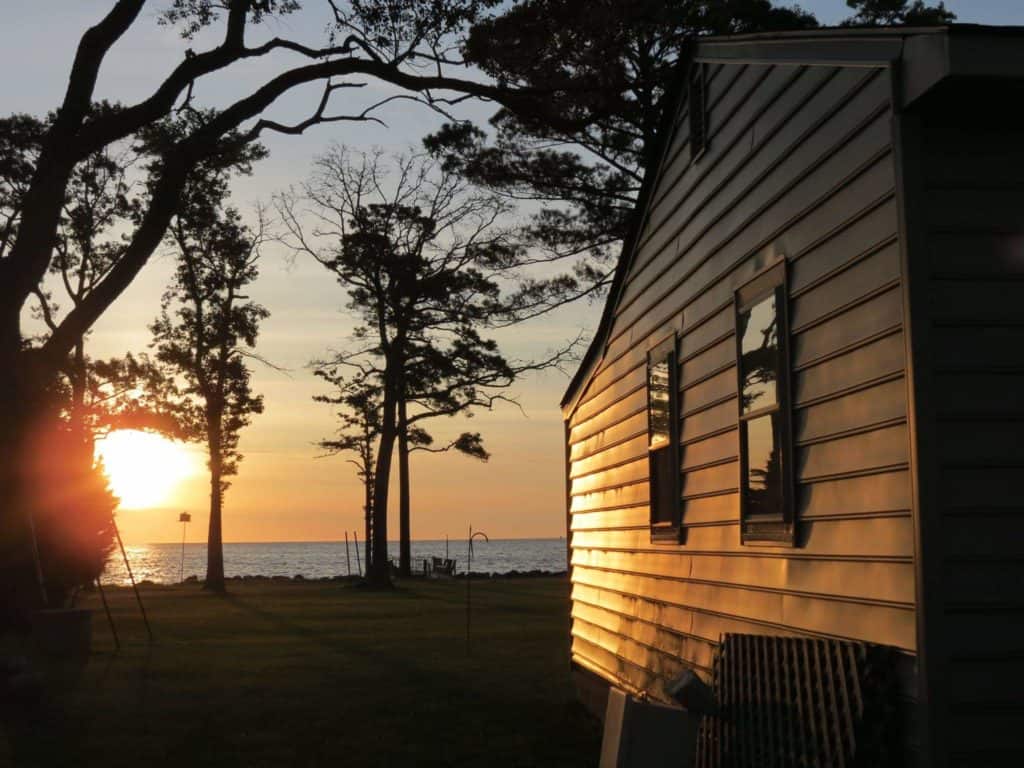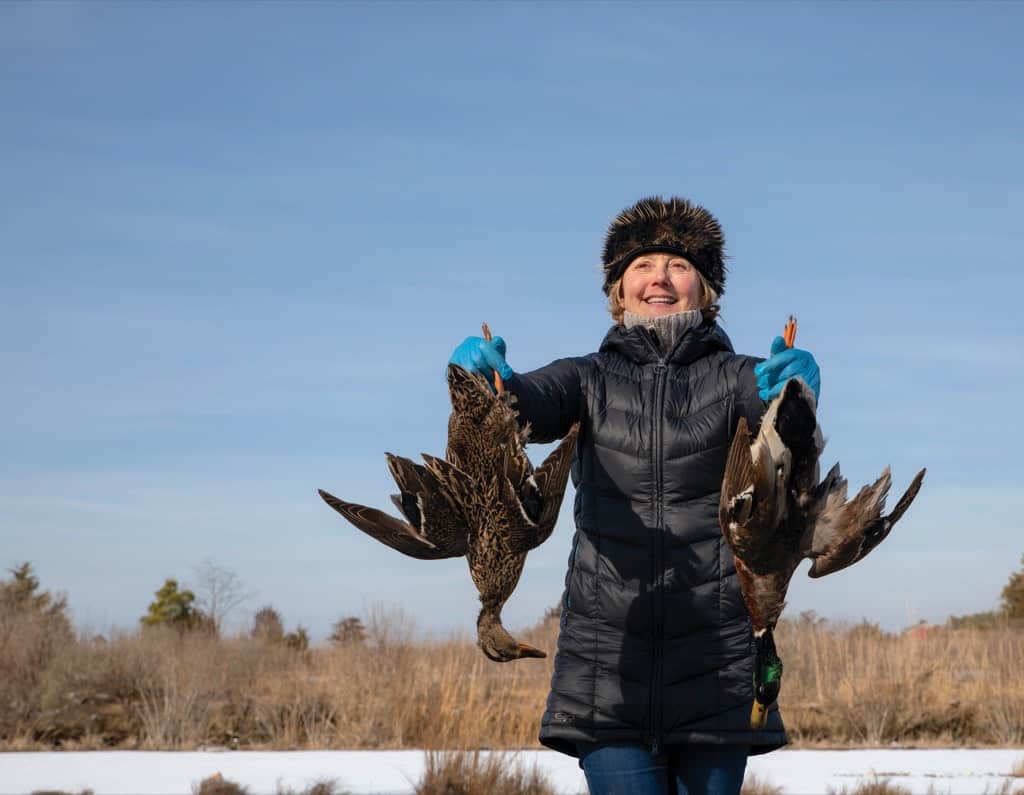One cottage on the Bay, generations of memories.
It’s a rustic, waterfront cottage on a Chesapeake Bay island—Fleets Island, to be precise—where the Rappahannock empties into the Bay. This old cottage is part of an isolated cluster of others, a mile or so off the main road. It’s been added onto over the last sixty or so years and is filled with second-hand furniture, hand-me-down linens, and old pots and pans. To do anything from using the stove to turning on the water pump requires knowledge of idiosyncrasies so specific they’re passed down like family history. There’s sand on the floor, salt in the air, and to me, it’s perfect.
The actual owner is my uncle, but we in the extended family like to call it “ours”. My uncle and grandfather purchased the overgrown waterfront lot in the late 1950’s, and family members helped clear it to build the original cottage. My great-grandmother even spent time there, so continuing down the line to my own two children, five generations of family have enjoyed good times there. It became, and has remained a fantastic escape for the entire family.
Over the years, various combinations of the family have stayed there. By day we swam, played on floats, or walked to the marina, counting ospreys and eagles along the way. At night, we moved beds and arranged cots so that everyone had a place to sleep. Most often, one cousin’s sandy feet were in another cousin’s sunburned face, but no one could have been happier. We were family, and we embraced the unity. It’s what we always did.
Long established routines continued, as adults cooked bacon and whispered over coffee so as not to wake the kids. Over the decades, so many in our family watched the same sun rise over the same spot on the same horizon while the same scene of boats pulling in crab pots played out just off the beach. Over time, younger members slept in the same rooms, same beds, and spent days on the same beach as older members, now gone. I hoped that when I had kids, they would appreciate that history and recognize this cottage as the place where most of the people in our huge family had gathered at various points in their lives. I hoped they would “get it”.
There was a satisfying comfort in watching simple family patterns repeat as part of the Bay experience. We always stopped at Diggs Seafood in Mattaponi for deviled crabs, a bushel of oysters, or a dozen soft-shelled crabs. Fishing from the jetty and walks to the marina through tangled marsh grass and sun-bleached driftwood were part of us. At the same time every day we’d come in out of the sun for lunch. After time on the beach, we’d all come in for supper. Our parents had done those things, and so had theirs. It’s what we did.
Sitting in well-worn lawn chairs under the scant shade of a lone pine near the beach, older family members spoke often of the fun they’d had there. Many of their stories began with “You’re too young to remember but…” or “Back in the old days…” Their spoken memories became part of our overall experience. And so did rummy.
Granddaddy loved to play rummy. He didn’t just enjoy the card game, he was a fiend. From an early age, we were essentially required to learn the game so that he would have someone else to beat. He would play anywhere, and anytime, but relaxing evenings after a day of fishing and swimming were prime rummy times at the bay-house. He played, my parents, aunts, and uncles played, and we cousins learned to play. It was the way.
Years later as adults, my sisters and I stayed at the cottage together with our own kids. Decades-old scenarios now played out by our children. They swam with cousins, walked to the marina, and slept on the same sandy cots we’d used as kids. And they learned to play rummy. I found myself saying “You’re too young to remember but…” or “Back in the old days…” I wanted them to learn family things such as—”We buy bait here because Granddaddy always did, we get groceries from that little store in town because we always have, or after supper we’ll walk to the marina like we always do. Simple familiar patterns were part of the good times. It’s just what we did.
One evening after a day of swimming, my kids and I played rummy. We talked about the number of dolphins we’d seen that day, who had found the biggest horseshoe crab, and the other important Bay things. I remembered as a kid having similar conversations with my parents as we shuffled cards after a day in the sun. Simple times spent with family had come to mean so much, and I appreciated and cherished them. But would my own kids feel the same? So many things we did while at the Bay we did just-because everyone had done them for years before us. There was satisfaction in that. Simple, decades-old traditions keep our family history intact. Would my own kids feel that?
We continued our rummy game and at one point my son shuffled the cards and said, “Funny how even if we never play rummy any other time we always play down here at the Bay. Why is that?”
My daughter dealt the cards and said nonchalantly without looking up, “It’s what we do.”
“Yep.” My son responded casually as he arranged his cards. “We’re awesome.”
I never again wondered if they would understand and appreciate the simple but powerful patterns established over decades by a huge, close-knit family.
They got it.
A year ago, I became a grandfather. A sixth generation will now enjoy that old cottage. The chubby little boy is only a year old and hasn’t been to the Bay yet, but when he goes, I will be the one to take him. Him and a deck of cards.




